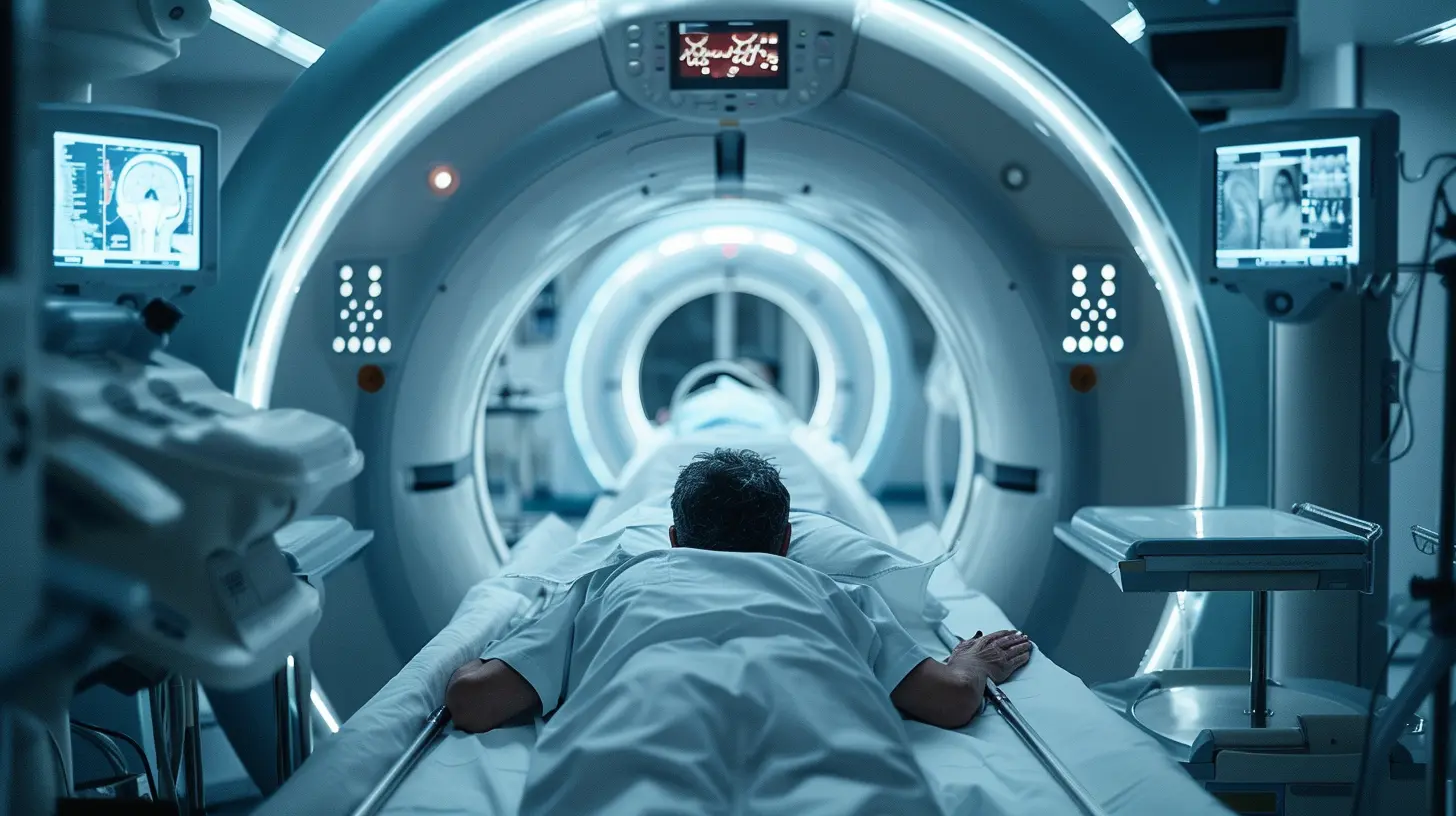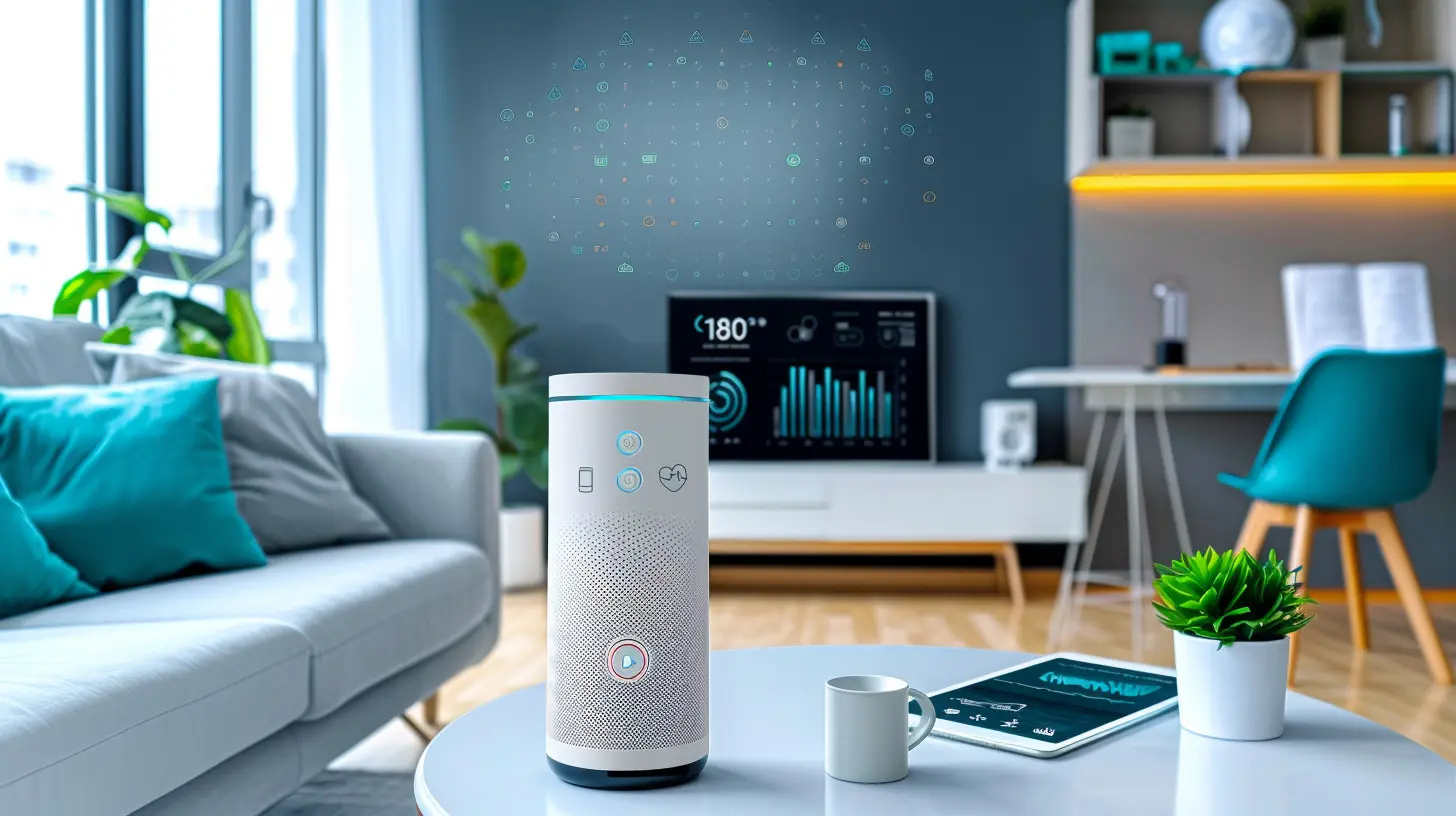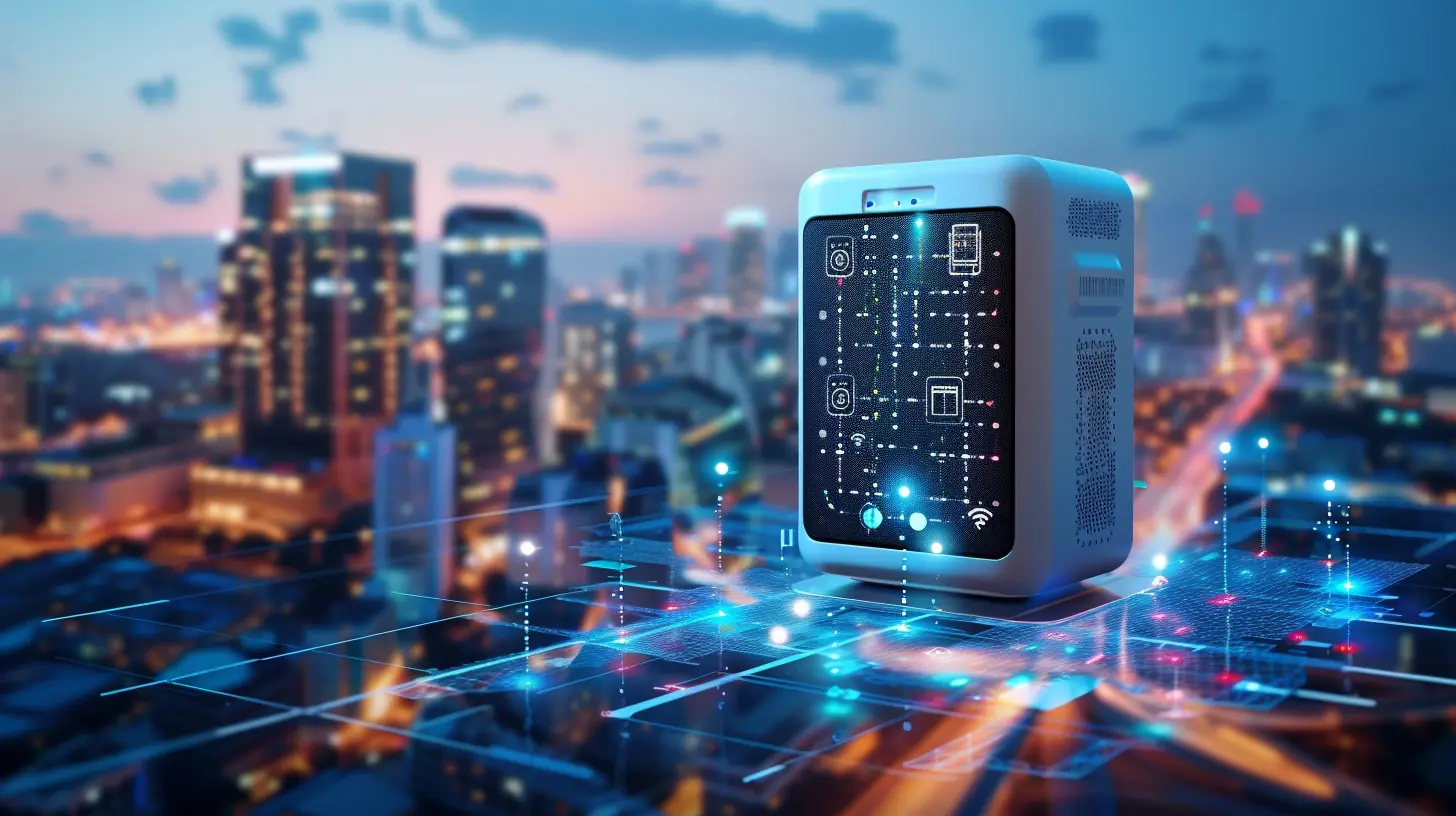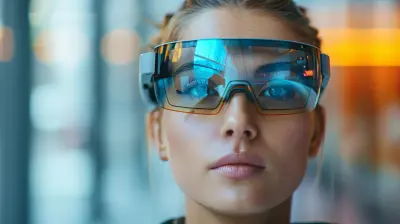How IoT is Powering the Future of Telemedicine
20 April 2025
The world of healthcare is changing fast, and technology is at the heart of this transformation. One of the most exciting developments? The Internet of Things (IoT) is revolutionizing telemedicine, making healthcare smarter, more efficient, and incredibly accessible. Whether it's monitoring patients remotely or streamlining hospital operations, IoT is reshaping the future of medical care.
But how exactly does this work? And what does it mean for patients and healthcare providers alike? Buckle up, because we're diving into this fascinating topic!

What is IoT in Healthcare?
Before we get into the nitty-gritty of how IoT is fueling telemedicine, let's break down what IoT means in healthcare. Simply put, IoT refers to a network of smart devices connected via the internet, continuously collecting and exchanging data. In the healthcare world, this could include:- Wearable fitness trackers
- Smart insulin pumps
- Connected ECG monitors
- Remote patient monitoring systems
- AI-powered chatbots for instant health advice
These devices collect real-time data and send it to doctors, hospitals, and even AI-driven systems, allowing for quick, data-driven medical decisions.

The Role of IoT in Telemedicine
IoT brings real-time health monitoring to the forefront, allowing doctors to keep track of patients without them stepping foot in a hospital. Gone are the days where healthcare was limited to in-person visits—IoT paves the way for remote checkups and treatments. Let’s take a closer look at how it’s doing that.1. Remote Patient Monitoring (RPM)
Imagine being able to have a doctor keep an eye on your health without leaving your couch. With IoT-powered Remote Patient Monitoring (RPM), this is no longer a dream—it’s reality.
IoT devices like smartwatches, glucose monitors, and heart rate sensors continuously collect data and send it directly to healthcare providers. This means doctors can detect irregularities in a patient’s condition before they turn into serious issues.
For chronic disease patients, such as those with diabetes or heart conditions, RPM is a game-changer. It ensures constant monitoring, reducing emergency room visits and unnecessary hospitalizations.
2. Smart Wearables for Personalized Healthcare
Wearables aren't just about counting steps anymore. They're evolving into essential healthcare tools. Devices like Apple Watches, Fitbits, and specialized medical wearables collect real-time data on heart rates, oxygen saturation levels, and even stress levels.For patients managing conditions like high blood pressure or respiratory issues, these wearables provide invaluable insights. With AI integration, these devices can even alert patients and doctors when something unusual is detected, potentially saving lives.
3. Telemedicine Consultations Made Efficient
IoT doesn’t just stop at monitoring—it enhances virtual doctor consultations too. Picture this: You’re feeling unwell, and instead of waiting hours in a hospital, your doctor reviews your vitals in real-time through connected devices and gives instant recommendations.Connected stethoscopes, otoscopes, and even digital thermometers allow doctors to conduct thorough virtual examinations. This means better diagnoses, quicker treatment, and improved patient experiences.
4. Reducing Hospital Readmissions
One of the biggest burdens on healthcare systems is readmission rates. IoT helps tackle this head-on by ensuring patients stay on top of their post-hospitalization care.Smart pill dispensers remind patients to take their medications. IoT-enabled beds monitor movement and vital signs, ensuring recovering patients are on track. This level of care significantly reduces the chances of complications and the need for readmission.
5. AI & Big Data for Predictive Healthcare
With IoT collecting heaps of data, the next logical step is making sense of it all. That’s where AI and Big Data come in.By analyzing vast amounts of patient information, AI can predict potential health issues before they even surface. It can flag signs of deteriorating health in a patient and recommend interventions before things escalate. This is particularly vital for managing chronic diseases and preventing severe health events like strokes and heart attacks.
6. Emergency Response & Ambulance Connectivity
IoT isn't just for everyday monitoring—it’s reshaping emergency medical services too. Imagine an ambulance equipped with IoT-enabled devices transmitting a patient's real-time vitals to the hospital even before they arrive.This allows doctors to prepare for the patient’s arrival in advance, saving crucial time and potentially lives. Smart ambulances are becoming an essential part of emergency healthcare, making treatments faster and more efficient.

Challenges of IoT in Telemedicine
While IoT has massive potential in healthcare, it doesn’t come without hurdles.1. Data Privacy & Security Risks
With so much sensitive patient data being transmitted, cybersecurity is a major concern. Hackers targeting IoT medical devices could compromise patient health records, leading to serious consequences. Strong encryption, multi-factor authentication, and strict regulations are needed to safeguard this information.2. High Implementation Costs
Setting up IoT infrastructure in healthcare isn't cheap. Hospitals and clinics need advanced technology, trained professionals, and strong network systems to make it all work. While costs will likely go down over time, initial investment remains a challenge.3. Dependence on Stable Internet Connections
Telemedicine relies heavily on seamless internet connectivity. In remote areas with poor infrastructure, IoT-based healthcare solutions may not work as smoothly, posing accessibility challenges.Despite these obstacles, the advantages of IoT in telemedicine far outweigh the drawbacks. As technology advances, these challenges will likely be addressed with better security measures, cost-effective solutions, and improved accessibility.

The Future of IoT in Telemedicine
What does the future hold for IoT in healthcare? The possibilities are limitless!- 5G Connectivity: Faster, more reliable networks will enhance real-time data exchange for even smoother telemedicine experiences.
- AI-Powered Diagnostics: Machine learning algorithms will make IoT devices smarter, enabling them to offer personalized treatment recommendations.
- Blockchain for Data Security: Secure and decentralized data storage will help tackle privacy concerns, ensuring patient information remains protected.
- Smart Homes for Elderly Care: IoT-powered homes will feature sensors that monitor senior citizens, detect falls, and even remind them to take medication.
It's clear that IoT isn't just a passing trend—it’s here to stay. The way we experience healthcare is evolving, and IoT is helping make medical care more accessible, affordable, and efficient than ever before.
Final Thoughts
IoT is reshaping healthcare in ways we once thought were possible only in science fiction. From remote patient monitoring to AI-driven diagnostics, the possibilities are endless. Telemedicine, powered by IoT, ensures patients receive top-tier medical attention without even stepping into a hospital.While challenges like data security and costs exist, the inevitable progress of technology will overcome these hurdles. The future of healthcare is digital, and IoT is leading the charge.
So, the next time you check your smartwatch for your heart rate or receive a remote consultation, remember—you're witnessing the future of medicine in action.
all images in this post were generated using AI tools
Category:
Iot DevicesAuthor:

Gabriel Sullivan
Discussion
rate this article
8 comments
Mateo Wolfe
This article brilliantly highlights how IoT enhances telemedicine by improving patient monitoring, streamlining communication, and enabling remote diagnostics. Exciting innovations are set to transform healthcare accessibility and efficiency!
May 9, 2025 at 11:36 AM

Gabriel Sullivan
Thank you for your insightful comment! I'm glad you found the article highlights on IoT's impact on telemedicine valuable. Exciting times ahead for healthcare!
Wyatt McLaurin
This article effectively highlights the transformative role of IoT in telemedicine. By connecting devices and enabling real-time data exchange, IoT enhances patient monitoring and facilitates remote consultations. As technology advances, the potential for improved healthcare delivery and patient outcomes through IoT continues to grow, making it a crucial area to watch.
April 28, 2025 at 10:46 AM

Gabriel Sullivan
Thank you for your insightful comment! I'm glad you found the article emphasizes IoT's critical role in enhancing telemedicine and improving patient care.
Niva Parker
IoT is revolutionizing telemedicine, transforming distant care into real-time collaboration. With smart devices connected, patients receive personalized health insights at their fingertips. The future of healthcare is not just smart; it's seamlessly intelligent, and patients are at the forefront.
April 27, 2025 at 11:14 AM

Gabriel Sullivan
Thank you for your insights! Indeed, IoT is reshaping telemedicine, making healthcare more accessible and personalized for patients. Exciting times ahead!
Virginia Bass
IoT enhances telemedicine, improving accessibility and patient care efficiency.
April 26, 2025 at 10:37 AM

Gabriel Sullivan
Absolutely! IoT is revolutionizing telemedicine by increasing accessibility and streamlining patient care, making healthcare more efficient and effective.
Zeno Castillo
The integration of IoT in telemedicine is revolutionizing healthcare by enabling real-time patient monitoring, enhancing remote consultations, and improving data management. These advancements foster efficient communication between patients and providers, leading to better health outcomes and streamlined healthcare services.
April 26, 2025 at 3:16 AM

Gabriel Sullivan
Thank you for your insightful comment! I completely agree that IoT is transforming telemedicine by enhancing patient care and communication. Your points highlight the significant impact of real-time monitoring and data management in improving health outcomes.
Valencia Robinson
Great insights! Excited to see how IoT enhances telemedicine's potential.
April 24, 2025 at 8:54 PM

Gabriel Sullivan
Thank you! I'm glad you found the insights valuable. Exciting times ahead for telemedicine and IoT!
Ava James
Exciting times ahead! IoT is transforming telemedicine, enhancing patient care and accessibility. The future of healthcare looks incredibly bright!
April 23, 2025 at 3:24 AM

Gabriel Sullivan
Thank you! We're thrilled about the possibilities IoT brings to telemedicine and its potential to revolutionize patient care.
Cody Johnson
IoT enhances telemedicine by enabling real-time data sharing and improving patient outcomes and access.
April 20, 2025 at 6:27 PM

Gabriel Sullivan
Thank you for your comment! Absolutely, IoT's capability for real-time data sharing is transforming telemedicine, leading to better patient outcomes and greater accessibility.
MORE POSTS

How Serverless Architectures Impact Cloud Security

The Growing Role of AI in Creative Industries like Music and Art

The Role of AR Glasses in Modern Healthcare

Electric Cars and the Future of Transportation Tech
How to Use Your Fitness Tracker to Improve Your Posture

Surface Pro vs. iPad Pro: Best Tablet for Productivity